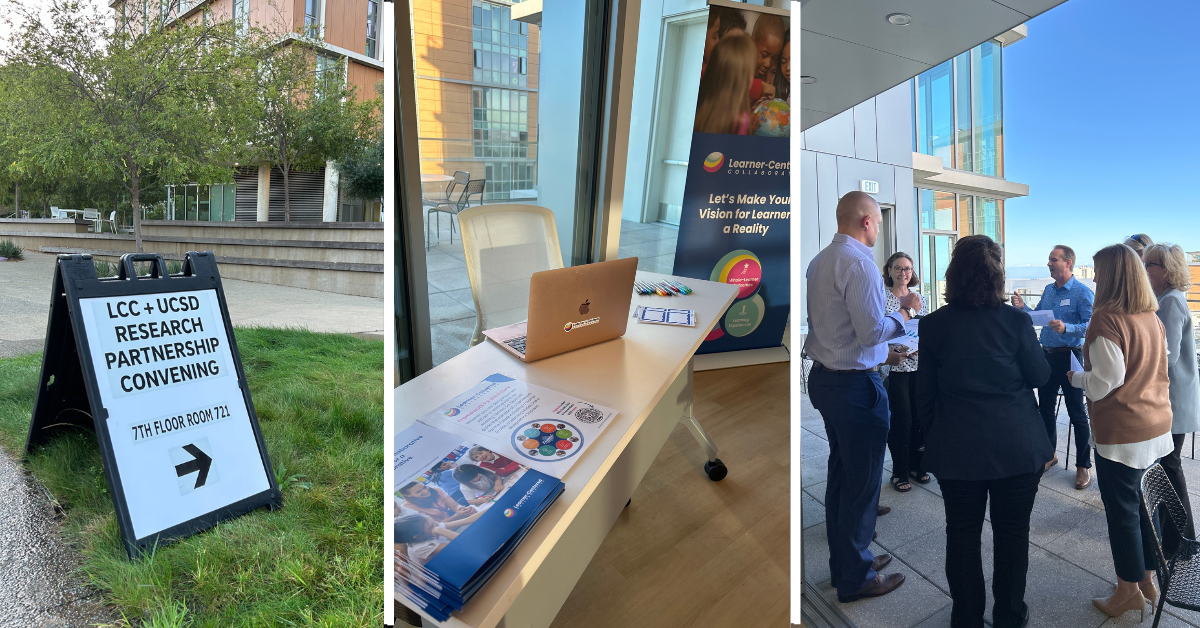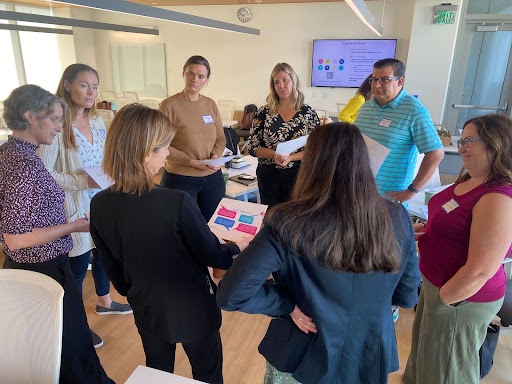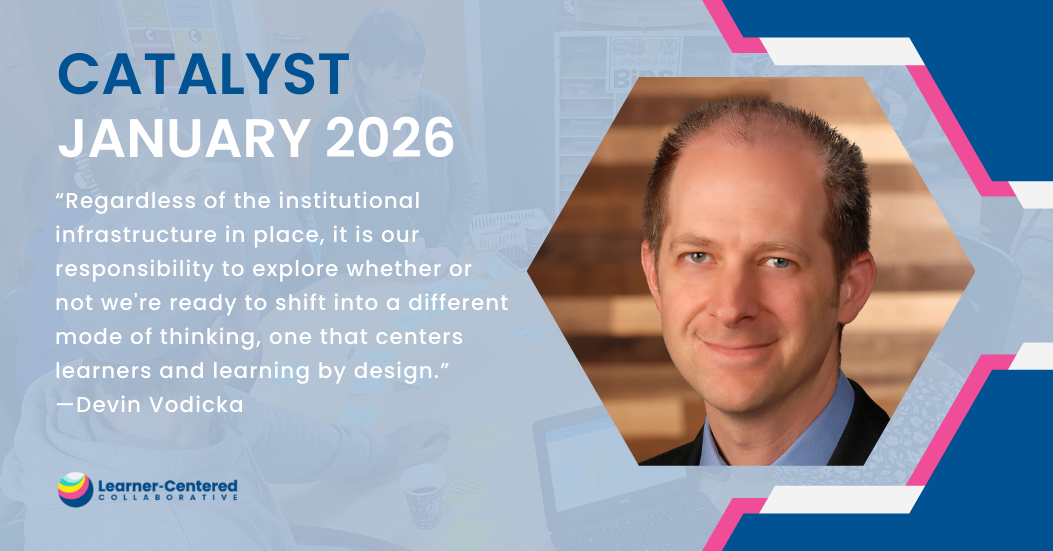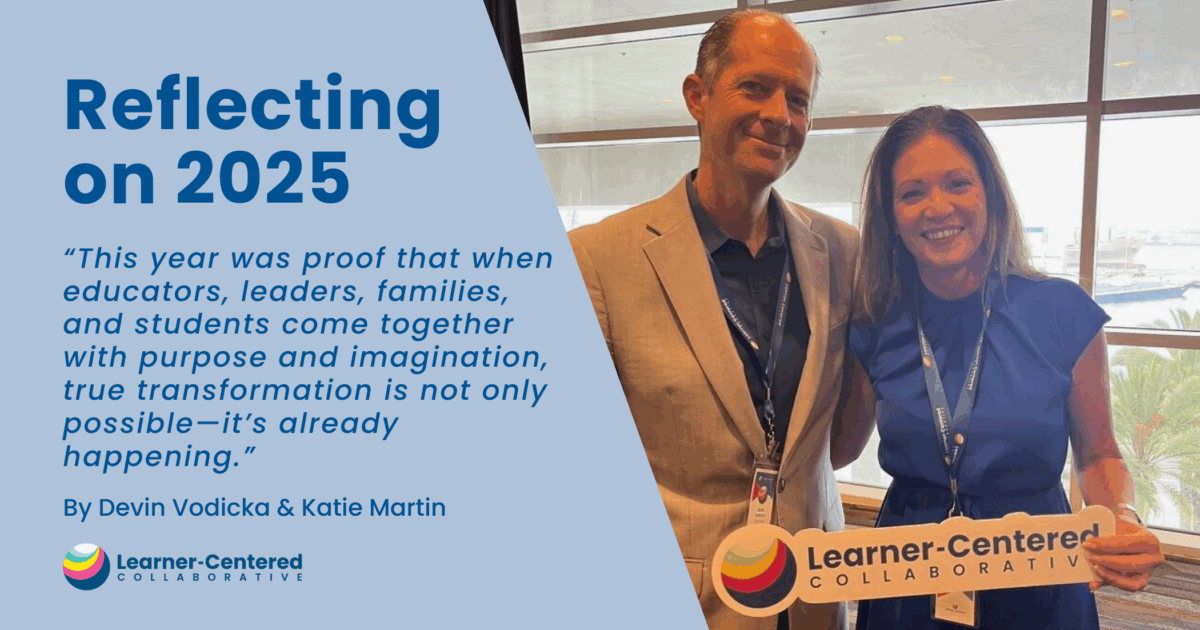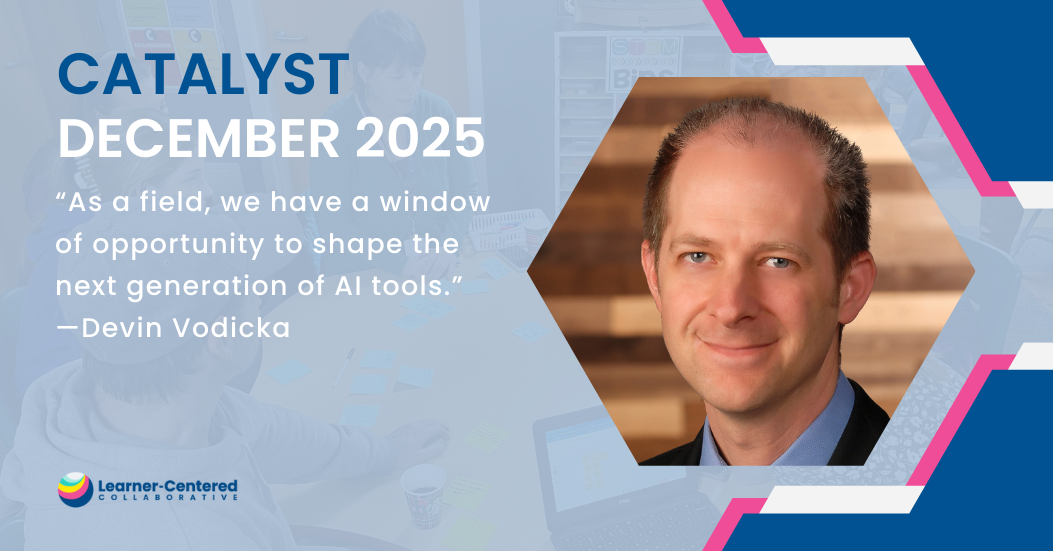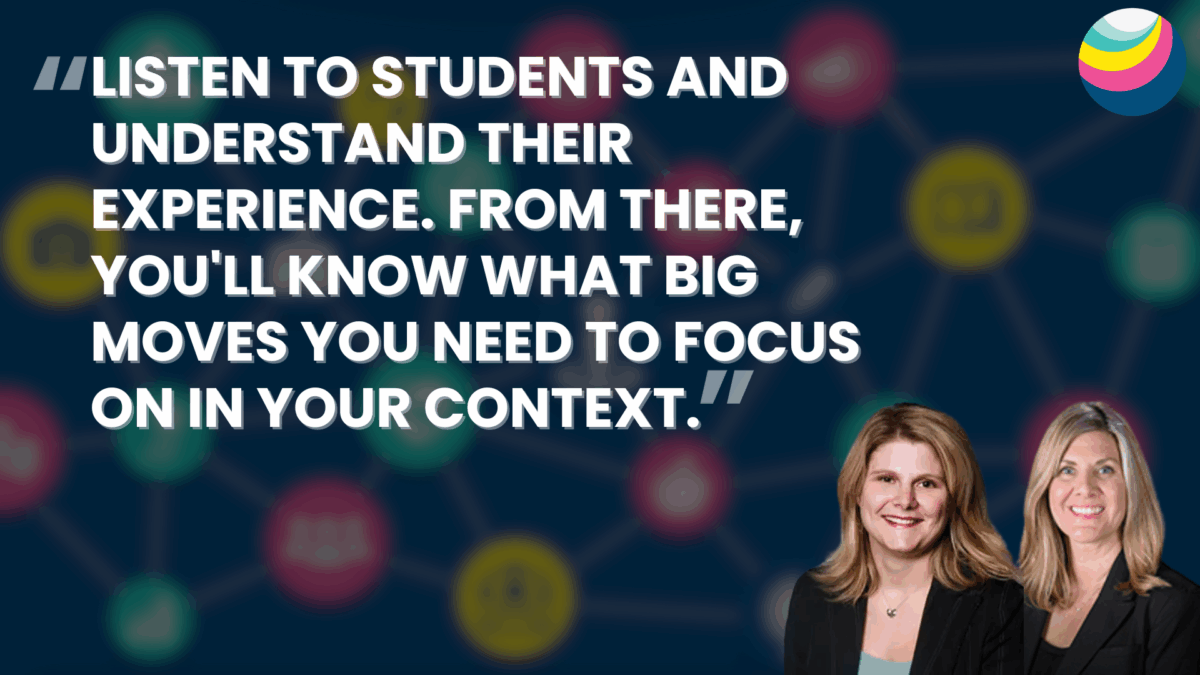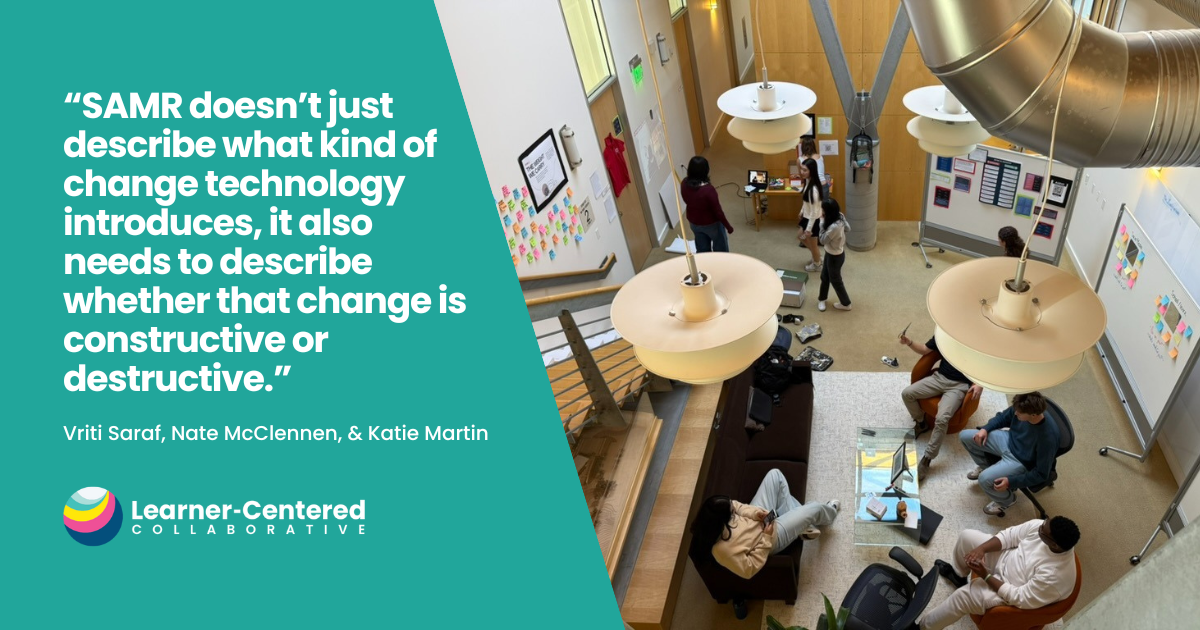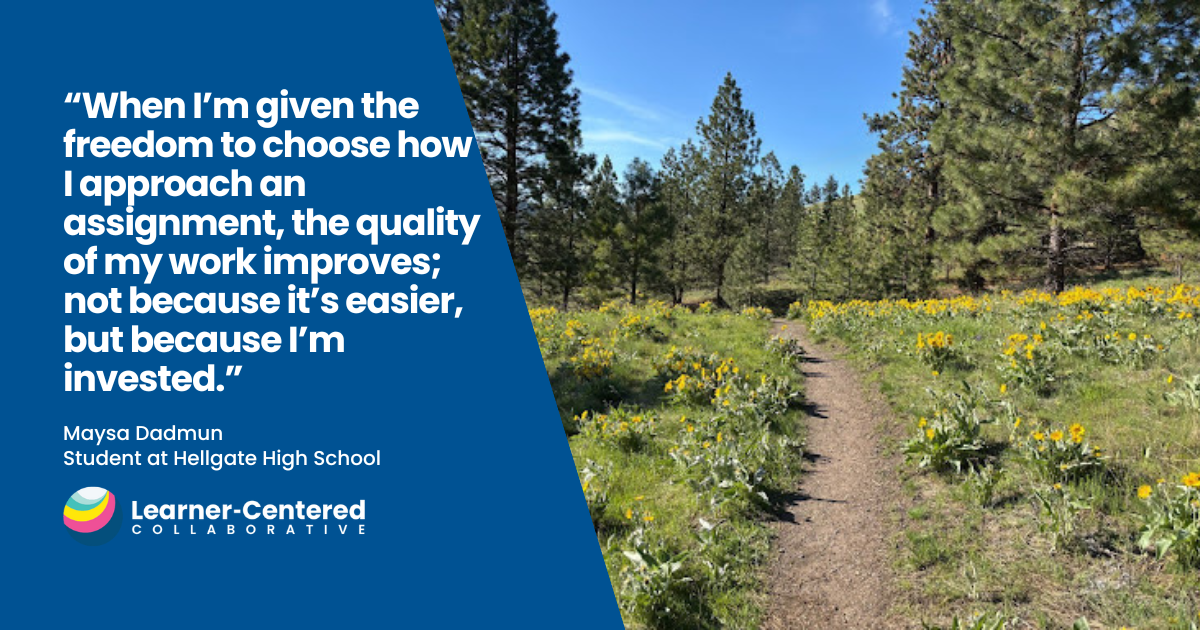Navigating Our Future: The Revised Big Questions Shaping Our Research Partnership with UCSD
In the ever-evolving landscape of education, the need for research and practices that are robust and reflective of contemporary challenges is imperative. Recognizing this need, Learner-Centered Collaborative, in partnership with UC San Diego, has embarked on a journey to foster innovation and advance knowledge in the field of education through collaborative research projects, shared resources, and joint initiatives. The collaboration between LCC and UCSD will leverage the expertise and resources of both organizations to drive impactful research outcomes to influence improvements for learners and for the field of education.
In October 2023, a consortium of educational leaders, teachers, and researchers gathered at UCSD to refine the direction of our research-practice communities. This collaboration has led to the revision of our key research questions, aimed at fostering a learner-centered approach in education.
Get more insights into our initial gathering to kick off this research-practice partnership in this first hand account from Liz Perry.
Our revised research agenda is driven by a series of “Big Questions” that emerged from our learner-centered framework and was informed by this collaborative effort. These questions are not just queries; they are beacons that guide us in exploring new terrains in educational research and practice. They reflect our commitment to understanding and shaping a future where every learner thrives in a community, knows who they are, and engages actively with the world as their best selves.
The Big Questions – REVISED December 2023
- What is the impact of aligning on a broader vision of success and co-creating community-based metrics of success?
- What knowledge, skills, and mindsets are most critical for learners to develop?
- What metrics are most effective in measuring what matters most to the community?
- What is the right “grain size” for reporting on mastery-based competencies?
- How do we best report on knowledge, skills and dispositions (Ladder vs knot competencies)?
- How might we assess and improve the levels of belonging, relational trust, and flourishing for all learners?
- What are the “big moves” that shift the perception of what is possible in public education?
- What supports are necessary?
- What are the impacts on learners?
- How do communities and families view the experiences and outcomes?
- How might students demonstrate their agency and lead change?
- How might creating a dual operating system in a school/district ( i.e micro-schools, teacher teams, houses, community partnerships, unbundling courses) that orients to whole-learner outcomes, meaningful learning experiences, and the enabling conditions impact students’ sense of self, purpose, and development of desired competencies?
- What are the “big moves” that make the most impact?
- How might these big moves create models to show what is possible nationally and globally?
- How do we create networks to scale these practices within and across communities?
- What is the impact of learner-centered experiences on whole-learner outcomes (such as students’ well-being, sense of purpose, post-secondary success, and lifetime earnings)?
- How does shifting the professional learning incentive structures for educators to competency-based models that mirror the desired practices in the learning environment impact:
- Educator efficacy?
- Learning experiences?
- Outcomes for learners?
- The role of the educator?
- Educator networks?
- How might we assess and improve the enabling conditions in education ecosystems to accelerate shifts in learning experiences and whole-learner outcomes?
- How do we capture and share the “Bright Spots” within and across communities?
These questions are not just a framework for our research partnership; they represent a commitment to a future where education is deeply connected with the needs and aspirations of every learner. As we delve into these questions with our partners, our aim is to uncover insights that will catalyze significant improvements for learners, communities, and for our interconnected society.
We invite you to join us on this journey of discovery and innovation. Your insights, experiences, and feedback are invaluable as we explore these questions and work towards creating education ecosystems that embody our vision for a learner-centered future.
Want to get involved in this work? Curious to get updates about our progress? Let us know here.
